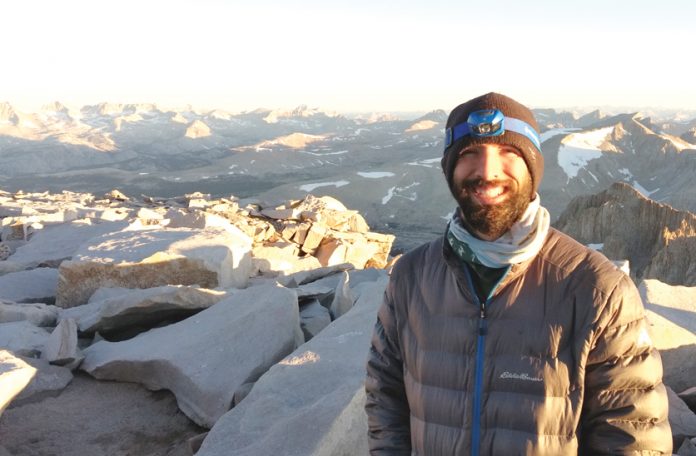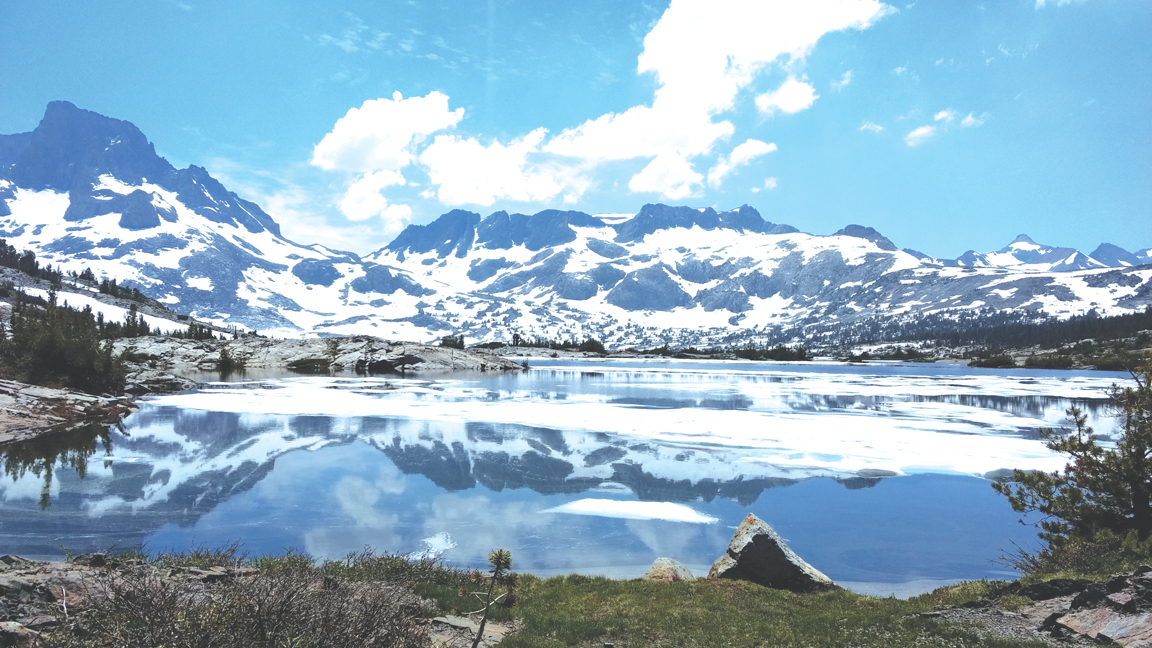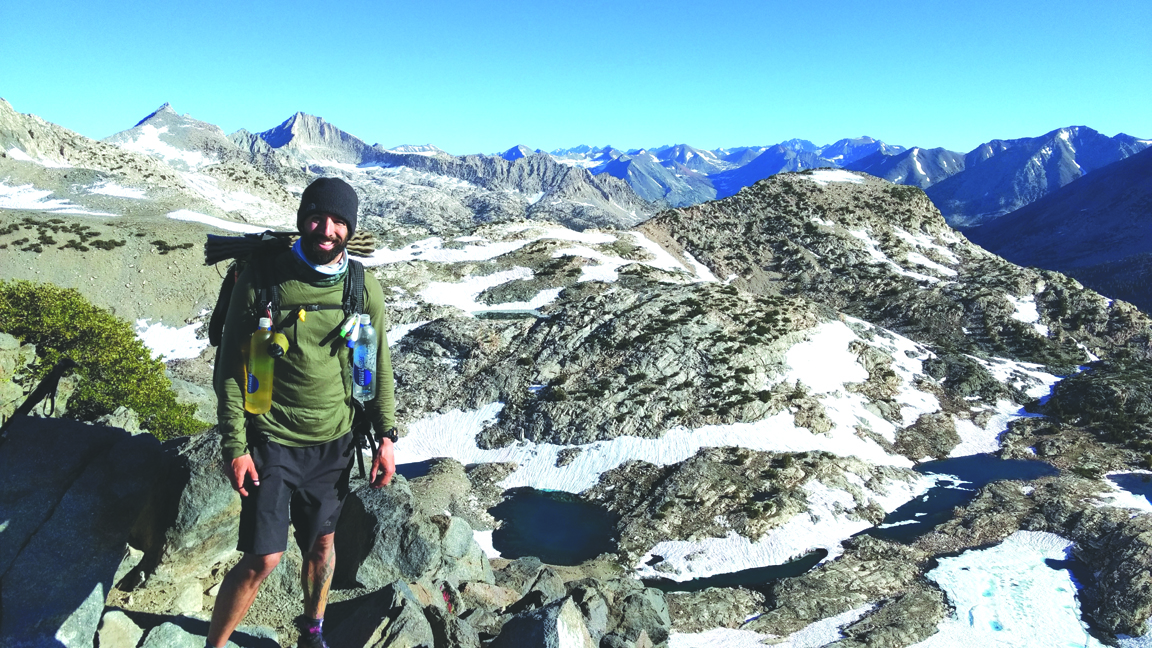
by Bobby Anderson, Staff Writer
The vents. The alarms. The difference between life and death measured in respirations, milliliters of fluid and micrograms of medication.
For the next three weeks all of that will be gone for ICU nurse Chris Houck.
Houck flew out last Friday and began a 211-mile hike this week on the John Muir Trail on the Sierra Nevada mountain range of California, passing through Yosemite, Kings Canyon and Sequoia National Parks.
Along the way, Houck will see temperatures ranging from the high-30s overnight to the 80s during the day. For every thousand feet he goes up in altitude the temperature will drop five degrees.
The pinnacle of the trip is Mt. Whitney, elevation 14,505 feet. Houck will get up around 1 a.m. the morning of his final ascent, trekking in the darkness with only his head lamp to light his way, in order to make it to the summit just as the sun rises.
It’s a life-changing experience.
A few years ago Houck started a Facebook group – Norman Outdoor Adventurers – for those who wanted to get moving outdoors. It was originally meant just for hospital employees but has branched out to anyone in the area.
“It’s not just about hiking,” Houck explained. “We’ve organized kayaking trips, overnight camping trips to the Wichita Mountains. It’s just for anybody who wants to get outside.”
Houck, 36, has been an ICU nurse for Norman Regional for the past 12 years.
Numerous hikes, starting out with day hikes then working his way up to overnight hikes have come along the way.
He began thinking about doing the John Muir Trail, a 211-mile trail that runs from Yosemite Valley to Mt. Whitney in California, after watching the documentary, Mile… Mile & a Half.
Houck then hiked the John Muir Trail by himself in just 19 days last July.
It was still “early season” for the hike and the path had its largest snowfall since the 1980s so Houck had to be careful as he hiked the snow-covered path.
“I hiked eight miles in snow on one of the days. I couldn’t even see the path—I had to just learn it on the fly,” Houck said.
This year, Houck is setting out to hike the trail again. He planned to hike this time with his 16-year-old daughter, Raelee, but unfortunately she injured her shoulder during track season and can’t go.
Houck’s wife, Keri, who also works at Norman Regional, was originally hesitant about Raelee going on the hike, but now she’s sad for her, Houck said.
Houck said his manager and director fully supported him taking the time to chase his dreams. He’ll be gone for three weeks.
“As long as I’ve still been working hard and make sure they have plenty of notice, I’m able to take these trips. It’s wonderful that Norman Regional fosters that type of environment—it keeps employees around,” Houck said.
Houck says hiking – upwards of 20 miles per day – is the easy part. An immense amount of planning occurs months before.
He lost 10 pounds on his last trip – eating a 3,800-calorie diet. A lot of time and research went into meal planning this time which includes not only selecting but cooking, measuring, dehydrating, packing and then mailing food to various supply drops along the way.
Those points are post offices off the trail. He hikes off usually 10 miles or so, picks up his supplies, checks in with the family on his cell and then hikes back onto the trail.
It keeps him from having to carry a trip’s worth of food but also keeps him on a tight schedule.
Once he reaches the summit it’s a 10-mile hike to the Mt. Whitney portal entrance.
“Mt Whitney doesn’t have a parking lot,” Houck laughed. “There’s a little restaurant there you hitch a ride out to Lone Pine.”
There’s a hostel in Lone Pine where he’ll grab a shower, a real bed and then a bus to Reno, Nevada the next morning and an airplane ride home.
“It’s tremendous,” Houck says. “It’s one of the reasons I’ve tried to encourage my coworkers. I think medical personnel and first responders – the mental stress we go through with our jobs and the things we see … the entire society would be better people if they went and did things like this more often. When you get back the things that bothered you before may not bother you now.”
“It kind of puts it into perspective and makes you grateful for what you have. You appreciate how great things can be when you get back.”

RN Supervisor Oncology Clinic
Job # 10230
Apply Online at NormanRegional.com
or call Julia Burleson BSN RN CHCR at 405.307.1554 for more information
An Equal Opportunity Employer
Norman Regional Health System
NormanRegional.com














